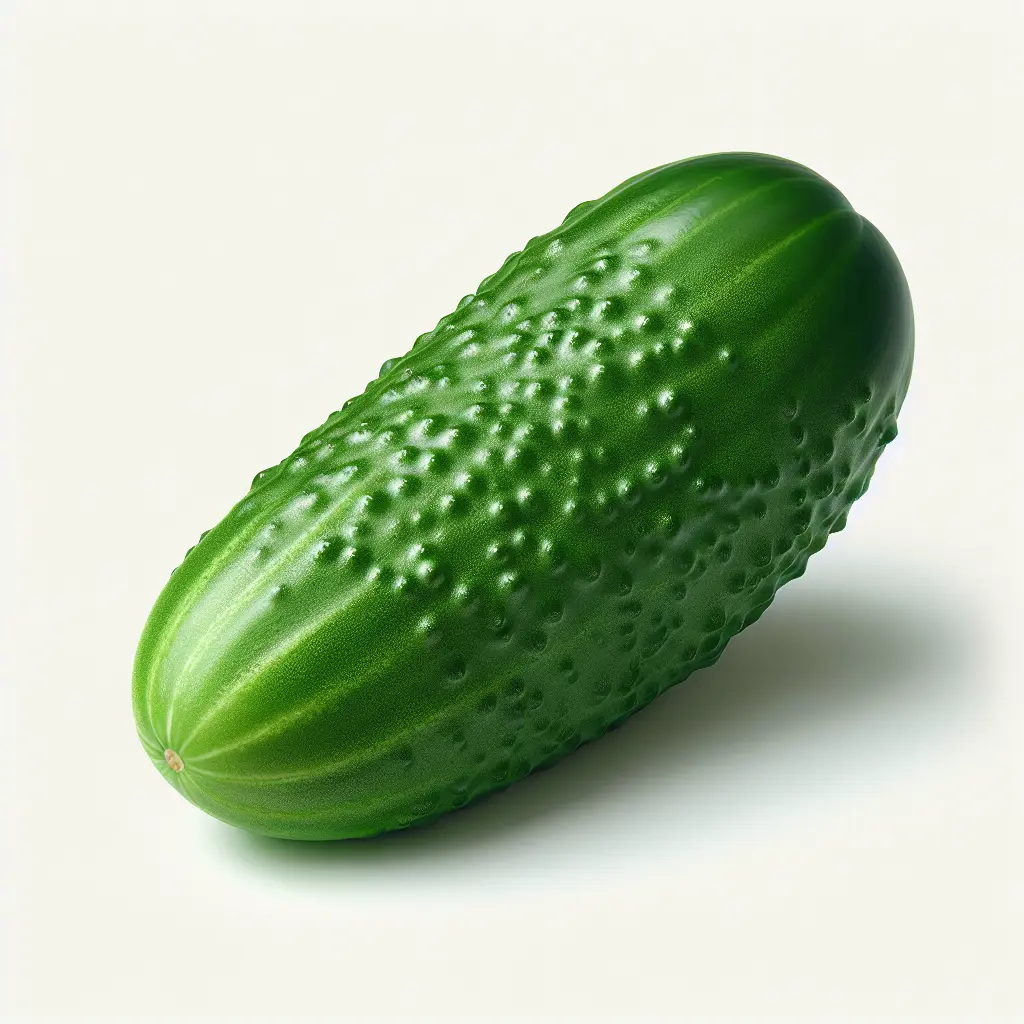Introduction
Cucumbers (Cucumis sativus) are a widely cultivated vegetable belonging to the Cucurbitaceae family. They are native to India and have been grown for centuries for their refreshing taste and versatility in culinary preparations.
Nutritional Profile
Cucumbers are a low-calorie food, with a medium-sized cucumber (about 11 ounces) containing approximately 30 calories. They are also low in fat (0.2 grams per serving) and carbohydrates (7.3 grams per serving). Cucumbers are a good source of essential vitamins and minerals, including vitamin K, vitamin C, potassium, and manganese.
Vitamins
- Vitamin K is crucial for blood coagulation and bone health.
- Vitamin C acts as an antioxidant and supports immune function.
Minerals
- Potassium is essential for maintaining fluid balance, regulating blood pressure, and supporting nerve function.
- Manganese is involved in bone formation, metabolism, and antioxidant defense.
Health Benefits
In addition to their nutritional value, cucumbers offer several health benefits:
Hydration
Cucumbers are primarily composed of water (about 95%), making them an excellent choice for hydration. Consuming cucumbers can help replenish lost fluids, especially during hot weather or after physical activity.
Anti-inflammatory Properties
Cucumbers contain cucurbitacins, compounds with anti-inflammatory properties. Studies suggest that cucurbitacins may help reduce inflammation in the body, which may benefit conditions such as arthritis and asthma.
Digestion
Cucumbers contain fiber, which is essential for digestive health. Fiber promotes regularity and can help prevent constipation. The high water content in cucumbers also aids in digestion by facilitating the movement of food through the digestive tract.
Skin Health
Cucumbers are rich in antioxidants, such as vitamin C and beta-carotene, which can help protect the skin from damage caused by free radicals. Applying cucumber slices to the skin may also soothe irritation and reduce puffiness.
Cholesterol Management
Some studies have suggested that cucumbers may help lower cholesterol levels. The fiber in cucumbers can bind to cholesterol in the digestive tract and prevent its absorption into the bloodstream.
Tips for Incorporating Cucumbers into Your Diet
Cucumbers are a versatile vegetable that can be enjoyed in various ways:
- Add sliced cucumbers to salads, sandwiches, and wraps.
- Blend cucumbers with fruits and vegetables to make refreshing smoothies.
- Pickle cucumbers for a tangy and flavorful condiment.
- Use cucumber slices as a garnish for beverages or as a refreshing snack.
- Grill or roast cucumbers for a unique and smoky flavor.
Conclusion
Cucumbers are a nutritious and versatile vegetable that offers several health benefits. Their low calorie and high water content make them an excellent choice for hydration. Additionally, cucumbers contain essential vitamins, minerals, and antioxidants that support overall well-being. By incorporating cucumbers into your diet, you can enjoy their refreshing taste while reaping their numerous health benefits.
How many calories are in Cucumber?
Each 1 medium of Cucumber contains 30 calories.
Cucumber Nutritional Information
| Nutrient | Amount per 1 medium (201g) |
|---|---|
| Calories | 30 Calories |
| Protein | 1.3g |
| Fat | 0.2g |
| Saturated Fat | 0.1g |
| Cholesterol | 0mg |
| Carbohydrates | 7.3g |
| Dietary Fiber | 1g |
| Sugar | 3.4g |
| Sodium | 0.004mg |
| Potassium | 0.2955mg |
| Calcium | 0.032mg |
| Iron | 0.0006mg |
